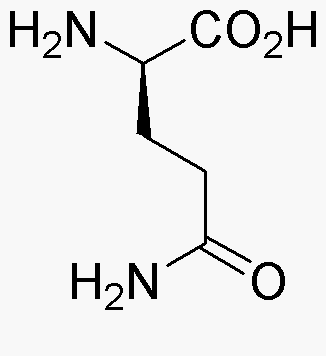D-Glutamine is widely utilized in research focused on:
- Nutrition and Dietary Supplements: Often used in formulations aimed at enhancing athletic performance and recovery, D-Glutamine supports muscle repair and reduces soreness post-exercise.
- Medical Research: Investigated for its potential benefits in treating conditions like irritable bowel syndrome (IBS) and other gastrointestinal disorders, where it may help in maintaining gut health.
- Cell Culture: Serves as an essential nutrient in cell culture media, promoting cell growth and viability in laboratory settings, particularly in the production of biopharmaceuticals.
- Neurotransmitter Regulation: Explored for its role in brain health, D-Glutamine may assist in neurotransmitter balance, potentially benefiting cognitive function and mood regulation.
- Wound Healing: Research indicates that D-Glutamine can enhance the healing process in patients, making it a valuable component in clinical nutrition for post-surgical recovery.
General Information
Properties
Safety and Regulations
Applications
D-Glutamine is widely utilized in research focused on:
- Nutrition and Dietary Supplements: Often used in formulations aimed at enhancing athletic performance and recovery, D-Glutamine supports muscle repair and reduces soreness post-exercise.
- Medical Research: Investigated for its potential benefits in treating conditions like irritable bowel syndrome (IBS) and other gastrointestinal disorders, where it may help in maintaining gut health.
- Cell Culture: Serves as an essential nutrient in cell culture media, promoting cell growth and viability in laboratory settings, particularly in the production of biopharmaceuticals.
- Neurotransmitter Regulation: Explored for its role in brain health, D-Glutamine may assist in neurotransmitter balance, potentially benefiting cognitive function and mood regulation.
- Wound Healing: Research indicates that D-Glutamine can enhance the healing process in patients, making it a valuable component in clinical nutrition for post-surgical recovery.
Documents
Safety Data Sheets (SDS)
The SDS provides comprehensive safety information on handling, storage, and disposal of the product.
Product Specification (PS)
The PS provides a comprehensive breakdown of the product’s properties, including chemical composition, physical state, purity, and storage requirements. It also details acceptable quality ranges and the product's intended applications.
Certificates of Analysis (COA)
Search for Certificates of Analysis (COA) by entering the products Lot Number. Lot and Batch Numbers can be found on a product’s label following the words ‘Lot’ or ‘Batch’.
*Catalog Number
*Lot Number
Certificates Of Origin (COO)
This COO confirms the country where the product was manufactured, and also details the materials and components used in it and whether it is derived from natural, synthetic, or other specific sources. This certificate may be required for customs, trade, and regulatory compliance.
*Catalog Number
*Lot Number
Safety Data Sheets (SDS)
The SDS provides comprehensive safety information on handling, storage, and disposal of the product.
DownloadProduct Specification (PS)
The PS provides a comprehensive breakdown of the product’s properties, including chemical composition, physical state, purity, and storage requirements. It also details acceptable quality ranges and the product's intended applications.
DownloadCertificates of Analysis (COA)
Search for Certificates of Analysis (COA) by entering the products Lot Number. Lot and Batch Numbers can be found on a product’s label following the words ‘Lot’ or ‘Batch’.
*Catalog Number
*Lot Number
Certificates Of Origin (COO)
This COO confirms the country where the product was manufactured, and also details the materials and components used in it and whether it is derived from natural, synthetic, or other specific sources. This certificate may be required for customs, trade, and regulatory compliance.


